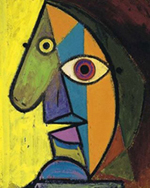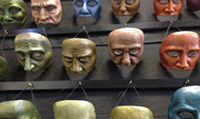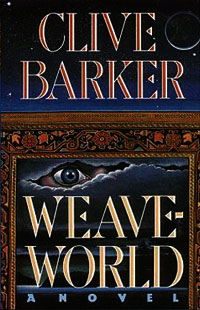The Doctor: “Can I trust you, River Song?”
River Song: “If you like! But where’s the fun in that?”
The Sun has moved into Scorpio.
I like to understand the nature of this time of year through the Celtic celebration of Samhain, because the Celtic tradition first and foremost acknowledges that the entire realm of the supernatural is real-but-not-real, here-but-not-here, there-but-not-there. In this regard, Scorpio is the intriguing sign through which we navigate our relationship between that which is visible and that which is invisible, that which is apparent and that which is apparition.
In Celtic lore, the Tuatha Dé Danann are a mythic race of supernatural beings who live inside the earth. At the time of Samhain they emerge from the Underworld to collect their dues for having provided a good harvest earlier in the year.
Six months ago the Sun was in Taurus, the sign opposite Scorpio. In the northern hemisphere, the world flourished with life abundant in rich, exuberant color and a wild diversity of creativity and design in the form of flowers of all kinds, plants, trees and lush sensual gardens of earthly delights. Now, with the Sun in Scorpio, as these riches turn back toward the Underworld and the Tuatha Dé Danann emerge on Samhain, it’s a time to give something back for everything you enjoyed in the six months prior.
This might be the true meaning of “letting go” when it comes to Scorpio. Rather than a last-minute faux-“release” of something gross and nasty you discovered in a recent therapy session—something you didn’t really want anyway and can’t wait to get rid of—Scorpio is the release of something more valuable, perhaps something creative, something truer that comes from the inner depths (preferably from the deepest supernatural depths which touch the timeless), perhaps something that can be a resource for others.
The autumn season in western culture sees an onslaught of “new releases” in stores every year in advance of the Christmas money-making season. Perhaps the meaning of Samhain can shed a bit of new light on why so many artists release new music and new books at this time of year, and why movie studios often wait until autumn to give us the best of what they’ve got. Maybe it’s not just the commercialization and commoditization of the holiday.
See, the creative Sun in Scorpio goes into stealth mode and dons some kind of mask when presenting the deeper self on the stage of the world (not unlike the Sun conjunct Pluto, which I recently wrote about). Pablo Picasso, born with the Sun in Scorpio, knew all about this. He said, “Good artists copy—great artists steal.” Life is a masquerade! And masks come in many forms. Masks have been part of culture for thousands of years. There is a lot of talk these days of authenticity and the removing of masks in order to reveal one’s true self. Yet, the tradition of putting on masks isn’t to hide the truth at all—rather, the tradition of masks is to present the complex truth in its deepest form. Masks cover up what is on the literal surface, allowing us to reveal something deeper about human nature without getting it confused with the actual person presenting it. With a mask on, one can present something more truthful, more powerful, more lasting, and even more troubling. Scorpio gets down to those depths.
The facts of life never present the whole truth of life. Facts are merely facts, and facts have expiration dates. Facts die, as people do. To present one’s more authentic self and the deeper aspects of human nature beyond the facts requires a mask, to show the archetypal truth, the truth that lasts through time and appeals to far more people than do the facts of your life. The truth wears many masks and comes in many forms and guises. That’s what keeps Scorpio true to its own nature. And it’s what keeps life exciting! And mysterious! Of course, the mask used to reveal the deeper self can also be used, as the Phantom sings in Phantom of the Opera, to “hide your face so the world will never find you.” Once a mask is donned, how do you know what is real and what is not real? What is true and what is a lie? Who can you trust? We can get quite lost in the dark, twisted every way in the labyrinthine lairs of life. Herein lies the real complexity of Scorpio. Yet, truth is reliable, like the thin thread tying Theseus to Ariadne as he entered the labyrinth to slay the Minotaur. Follow the thread—trust your instincts—and the truth will out.














